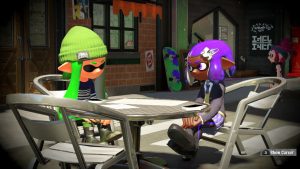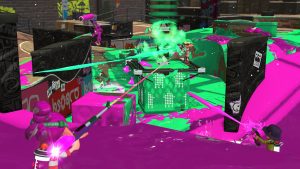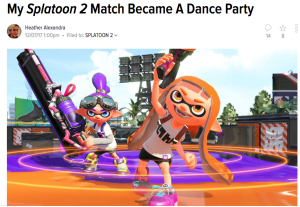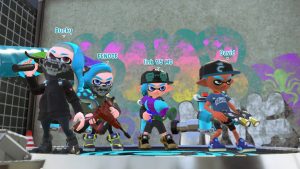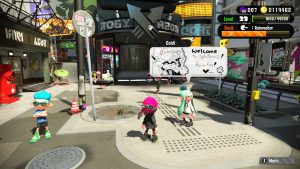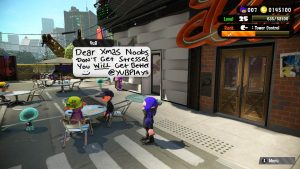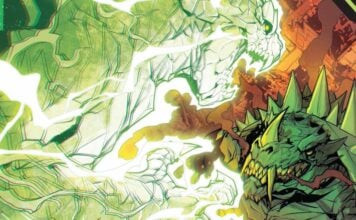How does an online multiplayer co-op game function without player communications?
How does that ecosystem function?
For many years, Nintendo has built up an image of family-friendliness that they’ve worked hard to keep. The DS platform family no longer includes SwapNote because users began sending inappropriate drawings and photos. Their biggest faces, Mario, Zelda, Kirby, Pokemon, etc. just about never contain blood or graphic death.
In recent years, Nintendo broke into the shooter genre with its Splatoon series, an online 4 versus 4 game of territory. Though third-person and offering several different challenge modes where the goal is never specifically to kill other players, the game is still online-based and relies heavily on team strength.
But how does this team-sport setup foster a healthy ecosystem with almost no verbal interaction? Well there seems to be several factors…

This is the closest you can get to the traditional tea-bagging of other players, but such an odd form of interaction is still limited to a player’s own space, as their are no bodies/ragdolls to disrespect. Kotaku’s Heather Alexandra experienced one such phenomenon from the “party squid” behavior, with her match becoming a full-on dance party.
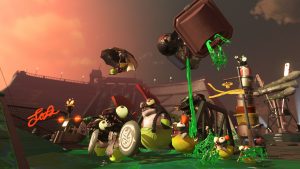
On one particular playthrough, I found myself in a very interesting scenario: During the course of maybe 10 matches, I was playing alongside or against a user named AntMann. He was pretty good and my first impression was a cross between “hey, my favorite Marvel movie!” and “damn it, he got me again!” But around the third match, we were on the same team. I began to “Booyah!” his kills and do the “party squid” motion if I was close by. This player did the same back to me, then we both started doing it as matches began and we found ourselves on the same team again and again. A couple rounds later, we were on opposite teams again. Enemy inklings can’t “Booyah!” to one another. Sp I ran around covering the turf with my paint roller until I saw AntMann coming in my direction. I stopped and backed up so he wouldn’t hit me, then did the party squid. He then did it back to me and we started painting in opposite directions! It became a scenario where this total stranger and I had agreed not to waste each other.
That experience was very positive for me as a player, finding that even without real words I could form a little friendship! What built on that positivity was another discovery-
Splatoon games allow players to make Splat Posts. These are messages you draw on your console that appear above your avatar in the hub world. Most of the time, these messages are nonsense, from memes, to well-rendered drawings, to the more unsettling writing such as “I love eating TIDE PODS!” or “Dad where are you?” Most of us have reported at least one post containing an expletive (remember, this is a game a lot of young kids are playing.) As displayed with Nintendo’s removal of SwapNote from the DS family, if a feature is abused, it can be revoked, so I feel this has encouraged Splatoon users to behave and call out others for misconduct.
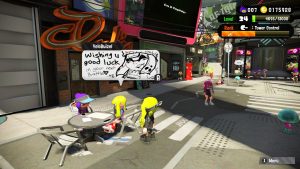
Splatoon 2 builds off of a compelling, fun, colorful game and continues to cultivate good will among its users. I can only hope other multiplayer co-op games take notes and find more ways to create camaraderie over toxicity.

